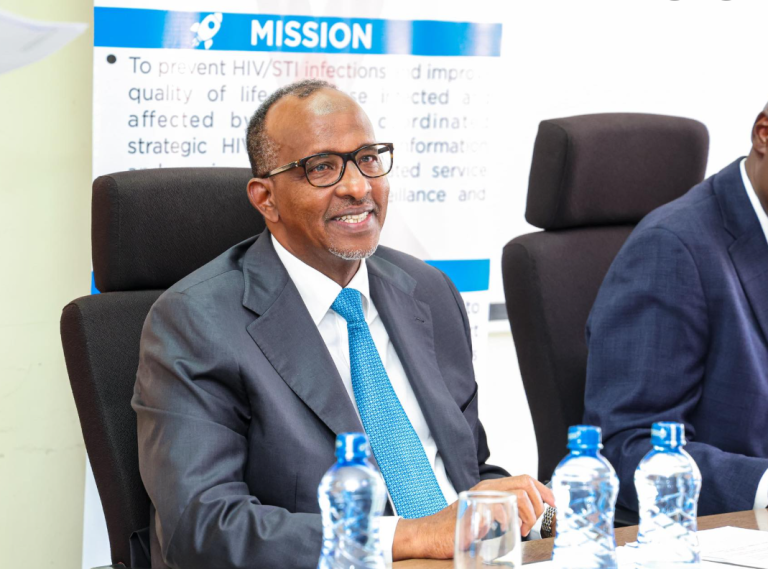The Kenyan government on April 3, 2025, reassured its citizens that their data collected on their HIV and Sexually Transmitted Infection treatment remained confidential.
This reassurance came amid concerns that the data would be affected by the funding cuts effected by the United States government after it shut down the United States Agency for International Development (USAID) program.
“The Ministry of Health wishes to assure all Kenyans that all data collected on HIV and STIs is primarily used to support patient/client care and service delivery. This data is securely stored in servers hosted by the Ministry of Health and is only accessible to authorized personnel for the purpose of enhancing patient/client care and informing policy decision,” said the Ministry in part.
They reiterated the confidentiality they provided to all patients and clients within the HIV care and beyond.
Health Cabinet Secretary Aden Duale, had earlier in the day, also appeared before the Senate Committee on Delegated Legislation, chaired by Tharaka Nithi Senator Hon. Mwenda Gataya, to discuss the proposed regulations for the Digital Health Act at Bunge Towers. The regulations aim to establish an integrated digital healthcare system “while ensuring robust data protection.”
Kenya has made significant strides in combating HIV/AIDS and other sexually transmitted infections (STIs), but challenges persist in ensuring universal access to treatment and eradicating stigma. With over 1.5 million people living with HIV and new infections still occurring, the country continues to invest in prevention, treatment and awareness campaigns.
However, with the January 2025 90-day freeze placed on the foreign aid managed by the U.S Agency for International Development (USAID) by President Donald Trump, profound implications on Kenya’s healthcare system continue to be witnessed and felt.
The decision to freeze funds to USAID was part of a broader initiative to review and restructure U.S. foreign assistance programs. Kenya relies heavily on international support for its HIV response, with approximately 1.4 million individuals living with HIV in the country. USAID has been a significant contributor, supplying around 40% of Kenya’s HIV drugs and related medical supplies.
Due to the funding suspension, distribution from warehouses stocked with donated antiretroviral (ARV) medications from America was been halted. This disruption led to dwindling supplies of essential drugs, causing anxiety among patients who depend on consistent treatment to manage their condition. Some healthcare facilities resorted to rationing ARVs, providing patients with only a week’s supply at a time, which is not sustainable for effective HIV management.
Following this, the Kenyan government undertook plans to ease these challenges. Kenyan health officials have been working to mobilize alternative resources to release the stranded medical supplies and ensure continuity of care for patients.
The government’s reassurance regarding HIV, STIs data confidentiality comes amid concerns of disruption of critical health information systems used in safeguarding patient data as Kenya heavily relied on several USAID-supported digital platforms to manage and protect health records. They include Kenya Electronic Medical Records, CHANJO Ke, DAMU Ke, Kenya Health Information System and HIV Data Reporting System.

